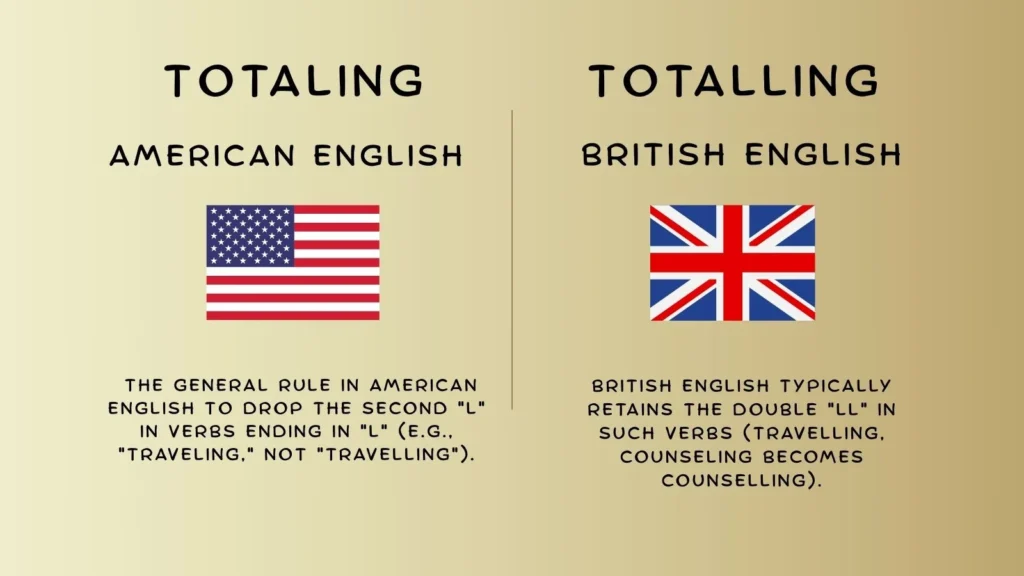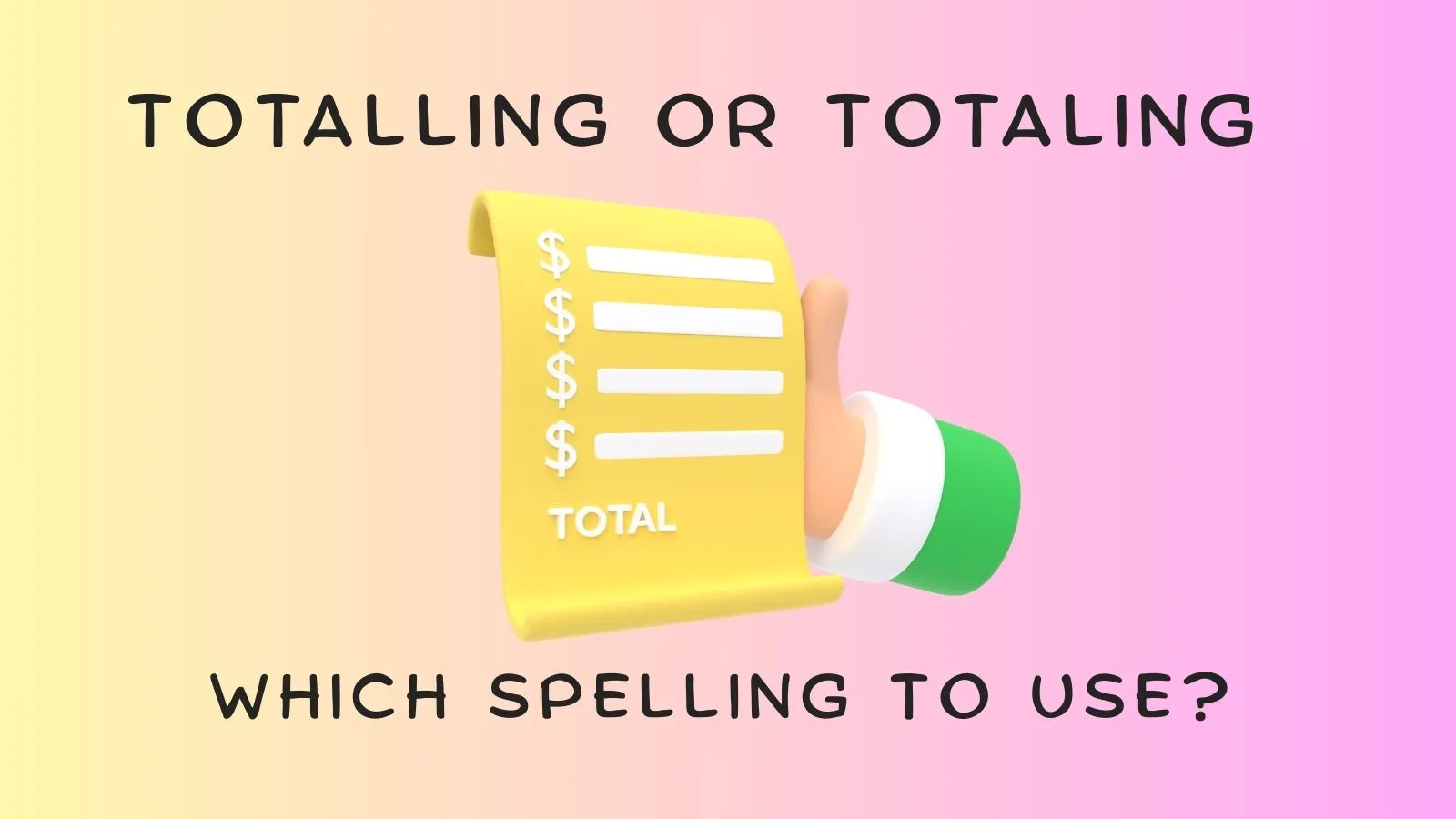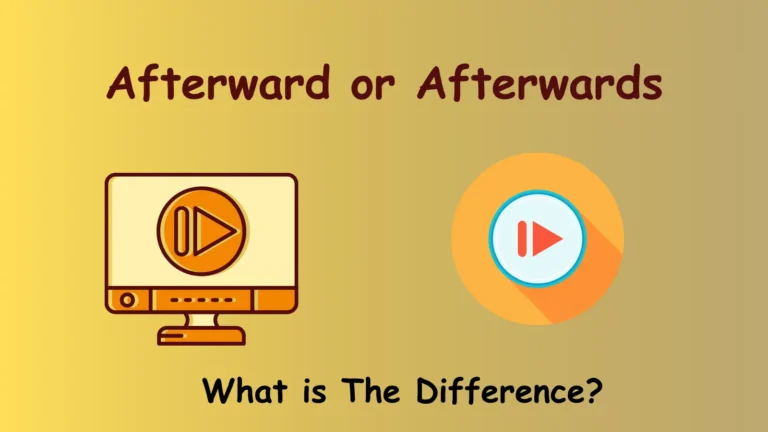Totalling or Totaling: Which Spelling to Use?
When debating totaling vs. totalling, the confusion stems from regional spelling conventions. Both terms are the present participle of the verb “to total,” which means to calculate a total or render something unusable (e.g., a “totaled” car). The difference between Totalling or Totaling, lies in the spelling:
- Totaling (American English)
- Totalling (British English)
The root word “total” originates from the French total, but spelling variations emerged as English evolved across the Atlantic. This guide will clarify which spelling to use and how to avoid errors like “spell totaled” incorrectly.
Regional Preferences: British vs American English
1. American English: Totaling
In the U.S., the preferred spelling is “totaling.” For example:
- “The accountant is totaling the expenses.”
- “The car was totaled in the accident.”
This totaling spelling follows the general rule in American English to drop the second “l” in verbs ending in “l” (e.g., “traveling,” not “travelling”).
2. British English: Totalling
In the U.K., the preferred spelling is “totalling.” Examples:
- “The engineer is totalling the costs.”
- “The car was totalled beyond repair.”
British English typically retains the double “ll” in such verbs (travelling, counseling becomes counselling).

How to Spell Total and Its Forms
Spell Total Correctly
The base word “total” is spelled the same in both dialects: T-O-T-A-L. However, its verb forms differ:
- Present Participle:
- American: Totaling
- British: Totalling
- Past Tense/Past Participle:
- American: Totaled (e.g., “The bill was totaled.”)
- British: Totalled (e.g., “The bill was totalled.”)
Common Misspellings to Avoid
- Incorrect: Totaling (U.K. context) or Totalling (U.S. context).
- Correct: Use “totaling spelling ” for American audiences and “totalling spelling” for British.
You will like know : What Does Compare And Contrast Mean?
Choosing the Right Spelling “Totalling or Totaling”: Tips for Writers
Know Your Audience:
- Use totaling/totaled for U.S. readers.
- Use totalling/totalled for U.K. or Commonwealth audiences.
Check Style Guides:
- APA, MLA, and Chicago typically favor American spellings.
- British equivalents (e.g., Oxford Style Guide) prefer “totalling.”
Use Spell Checkers:
Tools like Grammarly or Microsoft Word can auto-correct based on your language settings.
FAQ: Answering Your Spelling Questions
Q: How do you spell totaled?
In American English: Totalled (past tense) → “The project was totaled.”
In British English: Totalled → “The project was totalled.”
Q: What is the correct spelling of totalling?
“Totalling” is the British spelling for the present participle (e.g., “They are totalling the figures”).
Q: How to spell total?
The base verb is always spelled total (e.g., “She will total the costs”).
Q: Is there a difference in meaning between totaling and totalling?
No. Both terms mean the same; the distinction is purely spelling.
Q: What does “totaling” mean?
“Totaling” refers to calculating a total or rendering something valueless (e.g., “The storm totaled the house”).
Final Tips for Mastery
- Use Context Clues: If writing for an international audience, default to American English unless specified.
- Proofread: Double-check spellings in final drafts using a thesaurus or dictionary.
- Learn the Rules: Study regional grammar guides to avoid mistakes like “spell totaling” incorrectly.
Conclusion: Mastering “Totaling vs Totalling”
The choice between totaling or totalling depends on your audience’s regional preferences. By understanding the origins of these spellings and adhering to style guides, you can confidently answer questions like “how to spell totaled” and ensure your writing is error-free. Remember: Context is key!
Sources
Thesaurus.com (54 Synonyms & Antonyms for TOTALING), Cambridge Dictionary (TOTALLING | definition in the Cambridge English Dictionary),




